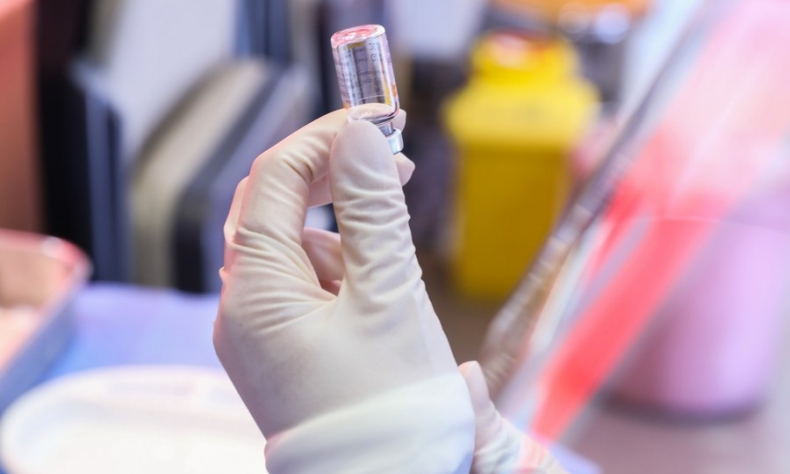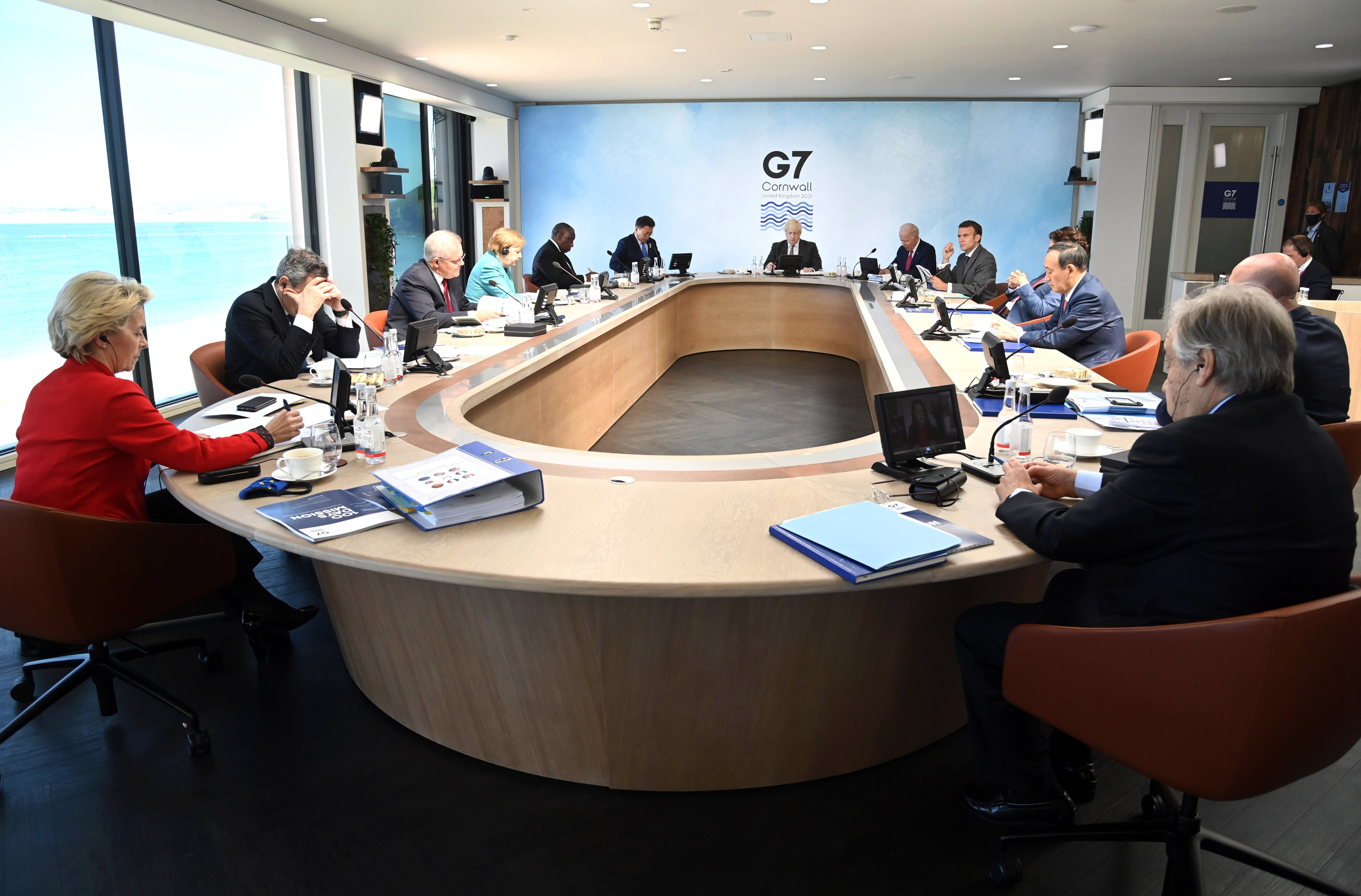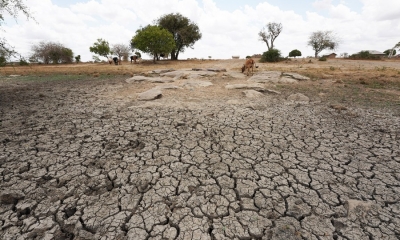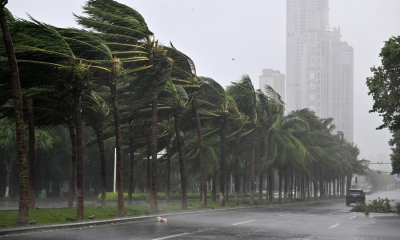G7 Will Vaccinate the World?

To date, the words of fair-minded philosophers have been drowned out by the hubbub of ideological, economic, and regional differences that has prevented an effective global response to Covid-19.
The G7 of rich countries meeting in Cornwall (England) has pledged one billion doses of vaccine as part of a plan to “vaccinate the world” against Covid-19 by the end of 2022. Half is to be donated by the United States, purchased from Pfizer in a ‘not for profit deal’, with 100 million ‘surplus’ doses offered by the UK.
This pledge must be welcomed for 88 per cent of the world’s population who have yet to receive a single dose of vaccine. In most countries, front-line workers and the most vulnerable go unprotected, while governments elsewhere consider inoculating children to complete their full-population vaccination schemes.
Back in September 2020, before any vaccine had been approved for use, Science magazine published an ethical framework for global vaccine allocation. It was drawn up by 19 eminent philosophers led by Ezekiel ‘Zeke’ Emanuel, a bioethicist and currently a member of President Biden’s coronavirus advisory board. The framework represents an attainable ideal but was not taken up. Now, it serves to remind us of what could have been done globally and how far we have fallen short.
The framework which the authors called ‘The Fair Priority Model’ is based on three principles: a vaccine should directly benefit people who receive it; people disadvantaged should be prioritized; and there should be no discrimination based on morally irrelevant differences. The authors recommended three phases in the distribution of vaccines: first, to reduce premature deaths; secondly, to lessen serious economic and social deprivation; and thirdly, to return to full functioning. Crucially, they envisaged a convoy model in which all countries made similar progress before allocating further vaccine to enable countries to progress to later stages.
Rather than the convoy model proposed by the philosophers, rich western nations continued with their policy of advance purchases of vaccines. They competed among themselves, hedging bets on which vaccines would come to market first by over-ordering from multiple suppliers. Once vaccines became available, the rich democracies sought to vaccinate as many of their own populations as possible. There were exceptions often created by international supply chains. By April 2021, the European Union had exported 43 per cent of its production, much of it to Britain – a cause of squabbling in a post-Brexit environment, while India had exported 42 per cent, a political issue when domestic infections began to rise. At that time, China – largely free of infection at home – had exported 49 per cent of its production and was castigated in the West for ‘vaccine diplomacy’. The US had then exported just 4 per cent of its production and UK nothing.
The nearest the world has to an ethical framework for the allocation of vaccine is the COVAX facility. This is a global procurement mechanism designed to make vaccines available to the two-thirds of the world without major economic clout. On 11th June 2021, it had shipped 81 million vaccine doses – just 4.05 per cent of the 2-billion target to be achieved by the end of this year. It has been starved of resources. Rich countries made bilateral deals with producers rather than working through COVAX leaving it outpriced in the world market. It has suffered from a lack of vaccines: supplies were over-purchased by rich countries and the Serum Institute of India had to divert its production to the domestic market. With no waiver granted on patent rights, it has been unable to manufacture its own vaccine and, until the new G7 pledge, countries had been unwilling to share their excess supplies.

Whereas the philosophers called for no discrimination and priority to be accorded to persons who were disadvantaged, the outcome has been quite different. The pandemic has exposed gross inequalities and vulnerabilities among informal workers, urban migrants, service sector workers and ‘front-line’ personnel. Women and other marginalized groups have been especially negatively affected. It has also revealed the structural inability of governments in liberal democracies to forgo short-term needs and to resist the demands of national electorates in order to benefit vulnerable populations in other jurisdictions. This has proved to be case even though such international solidarity would advantage the whole of personkind, including the electorates initially required to delay vaccination.
Given this scenario, Biden’s reference ahead of the G7 pledge to “a monumental commitment by the American people” smacks of hypocrisy especially as he followed up by saying that it was in “the United States’ self-interest to do so”, “to prevent mutations” and “to grow the economy”.
Biden elaborated: “We’re a nation full of people who step up in times of need to help our fellow human beings, both at home and abroad. We’re not perfect, but we step up.”
Reflecting on these words, history will surely emphasize the imperfection when set against the Fair Priority Model for vaccine allocation. Instead of a convoy, we have witnessed a winner-take-all model. Whereas 12 per cent of the world’s population has received at least one dose of vaccine, this is true for 52 per cent of Americans and 59 percent of Britons.
This strongly suggests that the existing world order is not fitted for the task at hand. Given another pandemic – or climate change or global poverty or the Sustainable Development Goals – it is not clear that the necessary purposive collaboration and partnership will be possible. To date, the words of fair-minded philosophers have been drowned out by the hubbub of ideological, economic, and regional differences that has prevented an effective global response to Covid-19.
Covid-19 has exposed the need to strengthen existing systems of global governance, to increase systems of global democratic accountability to balance those at national level, and to enhance participatory governance with special measures to give voice to the needs and aspirations of the disadvantaged. This must happen before Covid-22, or some other virus, wreaks further havoc.
The article reflects the author’s opinions, and not necessarily the views of China Focus.
 Facebook
Facebook
 Twitter
Twitter
 Linkedin
Linkedin
 Google +
Google +







